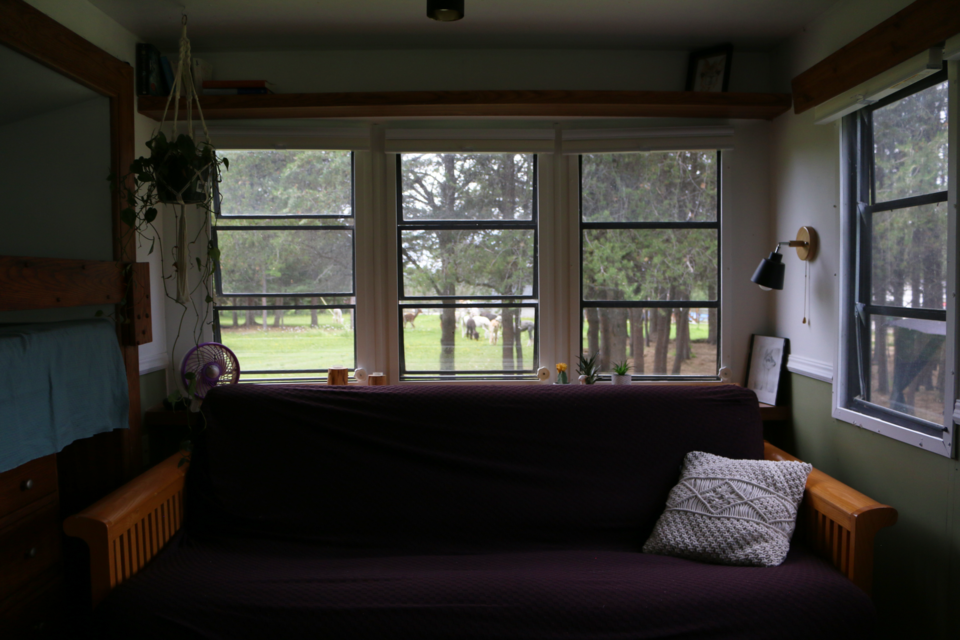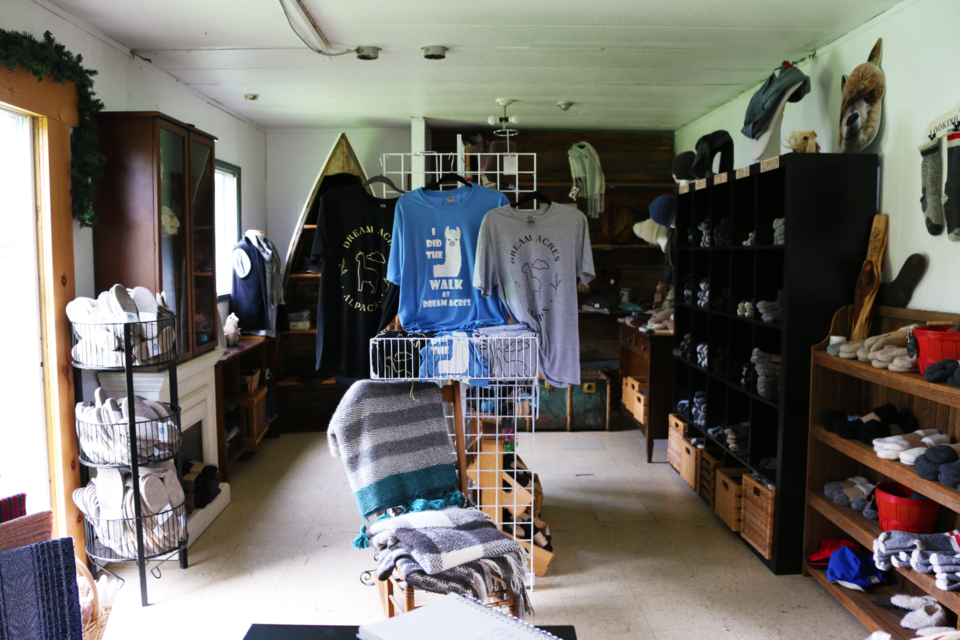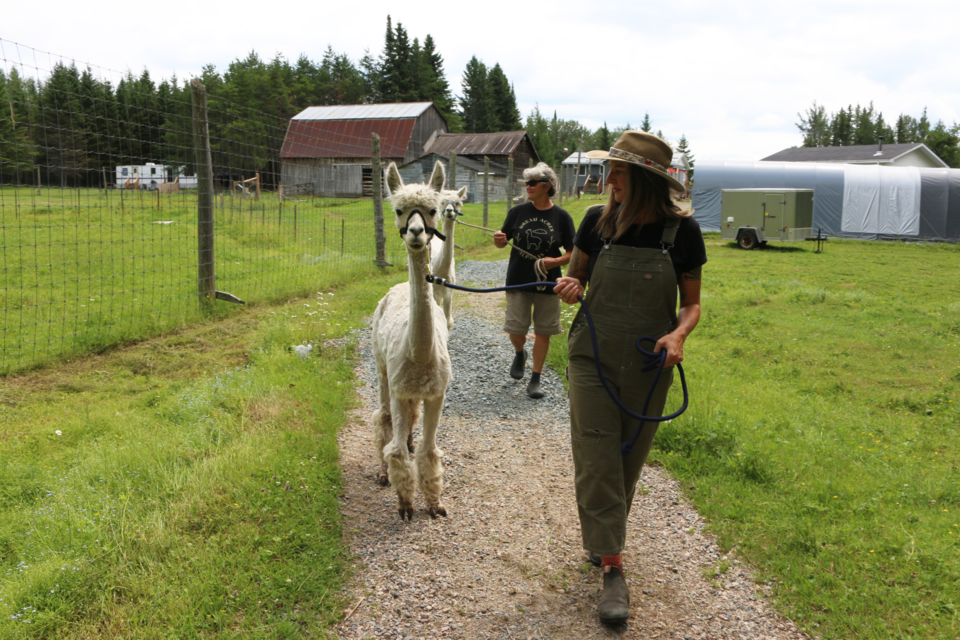If you’re itching for an outdoor activity that’s a little something different, a visit to Dream Acres might be just the thing you’re looking for.
Dream Acres is an alpaca farm located about 30 minutes east of Timmins. Jo-Anne and Gary Burton purchased their farm in 2008 after spending many years in many far-away places while working in aviation. Jo-Anne often jokes that aviation and alpacas are not so far removed from one another — after all, “they both start with ‘A’.”
The couple chose to move home to Timmins to be closer to family and closer to nature. Within six months, they had bought the property upon which Dream Acres is built and soon after, they had their first nine alpacas.
“It was always my dream as a kid to have a farm. I didn’t know what, but it was always my dream to have a farm,” Jo-Anne Burton says.
“We lived in Africa in a French-speaking country. Gary doesn’t speak French, so there was absolutely nothing to read for him. So, my dad used to send us Harrowsmith magazines, and I saw a picture of an alpaca on the back of it and I said, ‘When we get back to Canada, this is what we’re going to do.’”
The Burtons’ herd of nine eventually grew to 50 at its peak, but as COVID-19 hit, they decided to downsize. They now have a herd of 23; 18 females and five males.
“That’s when we decided to focus a little bit more on tourism. So that’s kind of where we’re headed,” Burton says. “But every year we try to come up with something new.”
Bringing many fresh ideas to the farm is Burton’s niece, Danielle Piquette, who spent a few months at the farm when COVID-19 locked down her place of work. Piquette says that's when she fell in love with the alpacas, and with life on the farm. She eventually moved back home to Timmins and officially joined her aunt as a partner and marketing manager just last year.
“They’re very curious animals. They like to be around people but at an arm's length. They’re not very cuddly. They’re scared of everything too, so they’re very funny to be around. They’re very inquisitive and if somebody shows up, they’re all popping their heads out and coming to see. A lot of people find them very entertaining to watch,” Piquette says.

Those wishing to experience the therapeutic nature of spending time with the alpacas can book a stay at the fittingly named Paca Shack, an Airbnb on the property that opened for business last summer. Visitors to the Paca Shack can expect to wake up in the morning to curious alpacas poking around their windows.
For shorter visits, Dream Acres also offers farm tours and walks with the alpacas along the property’s five kilometres of trails.
“A lot of people seem to like the walks because it’s obviously something very unique,” Piquette says. “It’s nice because it kind of forces you to relax because you can’t really do any sudden movements around the animals because they stress out very easily. And the trails are just beautiful.”
“We’ve been doing walks and tours since day one, but in the beginning we weren’t charging for them, we weren’t advertising them. Now it’s a little more structured,” Burton says.
“Before COVID it was just Gary and I, so people would just drop in and you would do a tour as you could. But with COVID we had to start taking appointments. 2021 was our busiest year ever for tours,” she says.

In addition to the tours and Airbnb they also, of course, sell products made from alpaca wool: everything from socks to hats to shawls to sweaters and more.
Even though they do buy some of their fleece from other farms — Piquette thinks they would need 300 alpacas to keep up with demand — all their materials and products are Canadian-made, and most of them are made in-house.
“Almost everything is handmade here, so they’re all very unique pieces. There’s not one that’s the same, so I think people like that aspect of it. A lot of people are kind of price shocked, but then they see the work that’s involved,” Piquette says.
“Also, alpacas have much less of an environmental impact because to treat the fibres to make it into wearable fabric, you don’t need to have all these chemical processes to it. A lot of sheep wool, you do.”
Burton and Piquette want to continue offering new, unique experiences to people in the community and teaching them about these quirky, lovable creatures. In the future, they’re hoping to offer workshops in weaving or dyeing.
“That’s kind of what we’re focusing on is getting more people to come out and see what we do here,” Piquette says.



